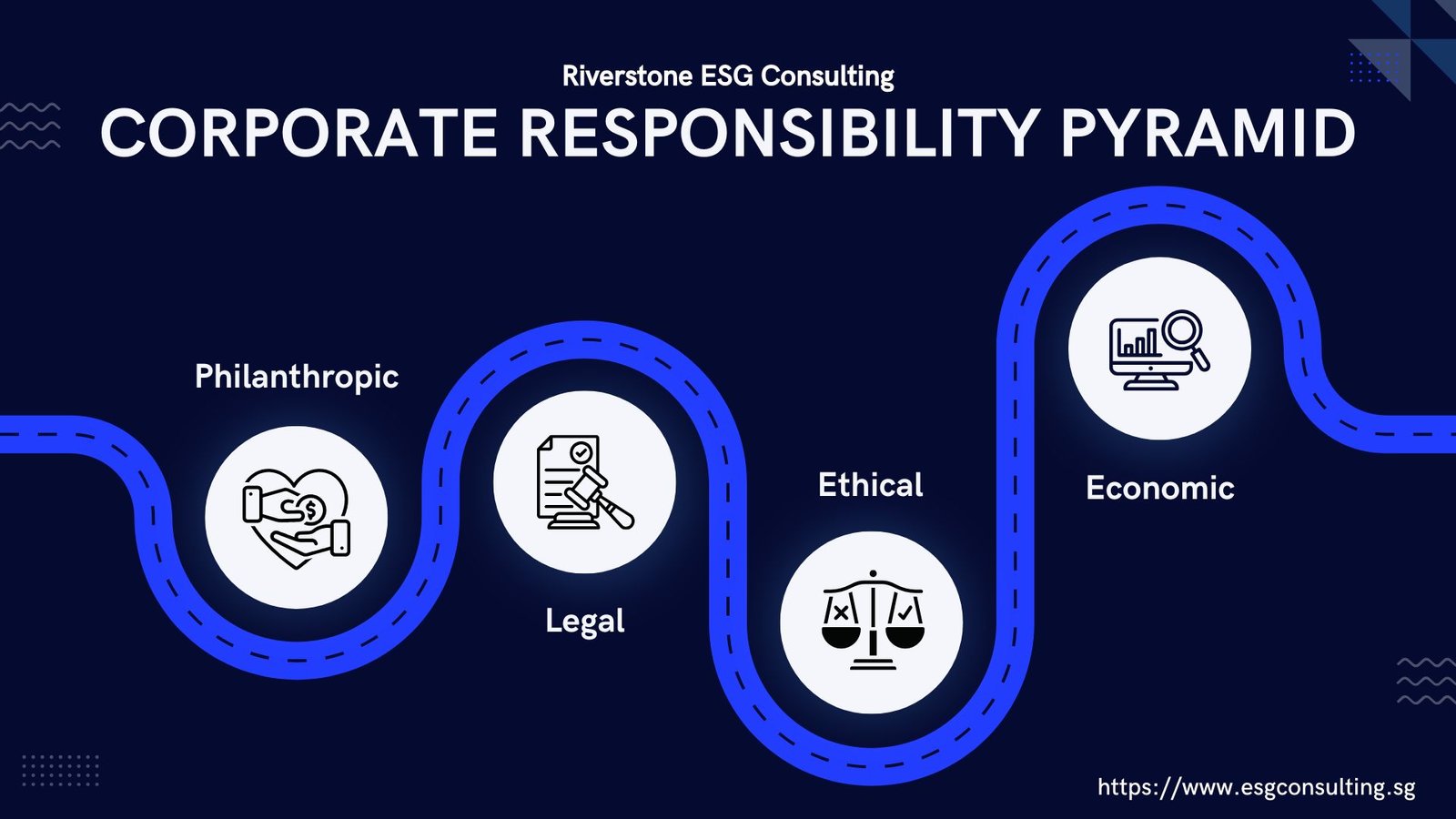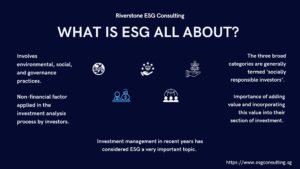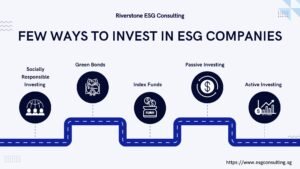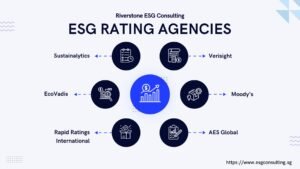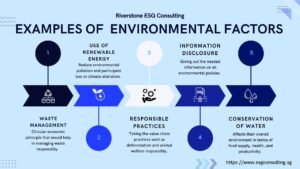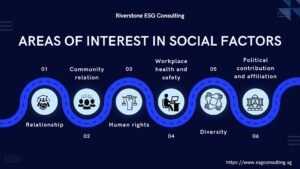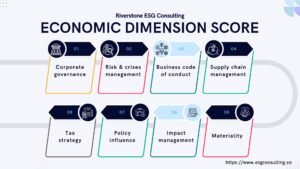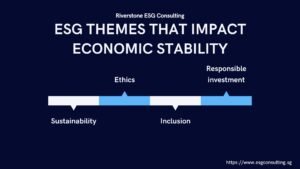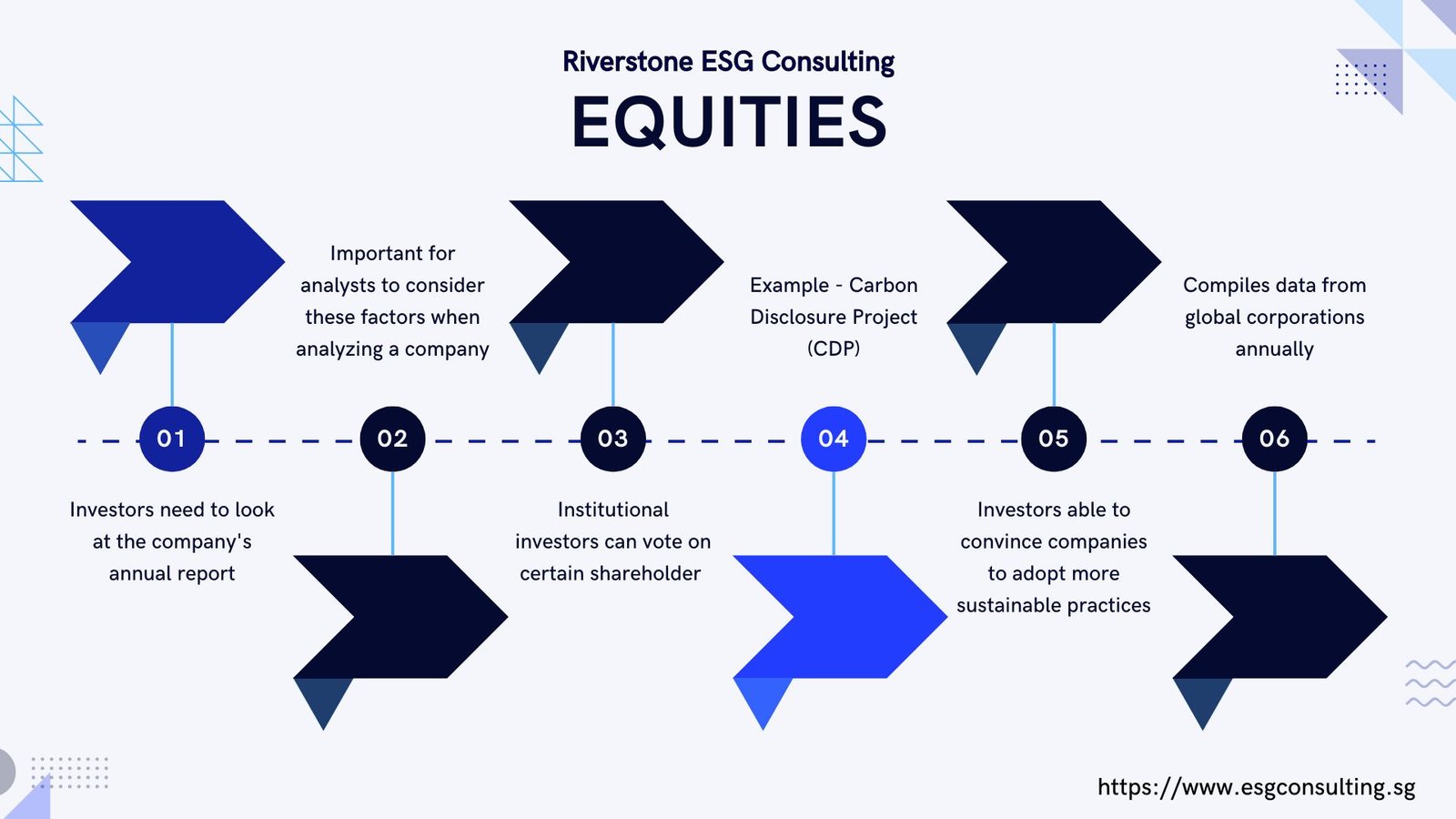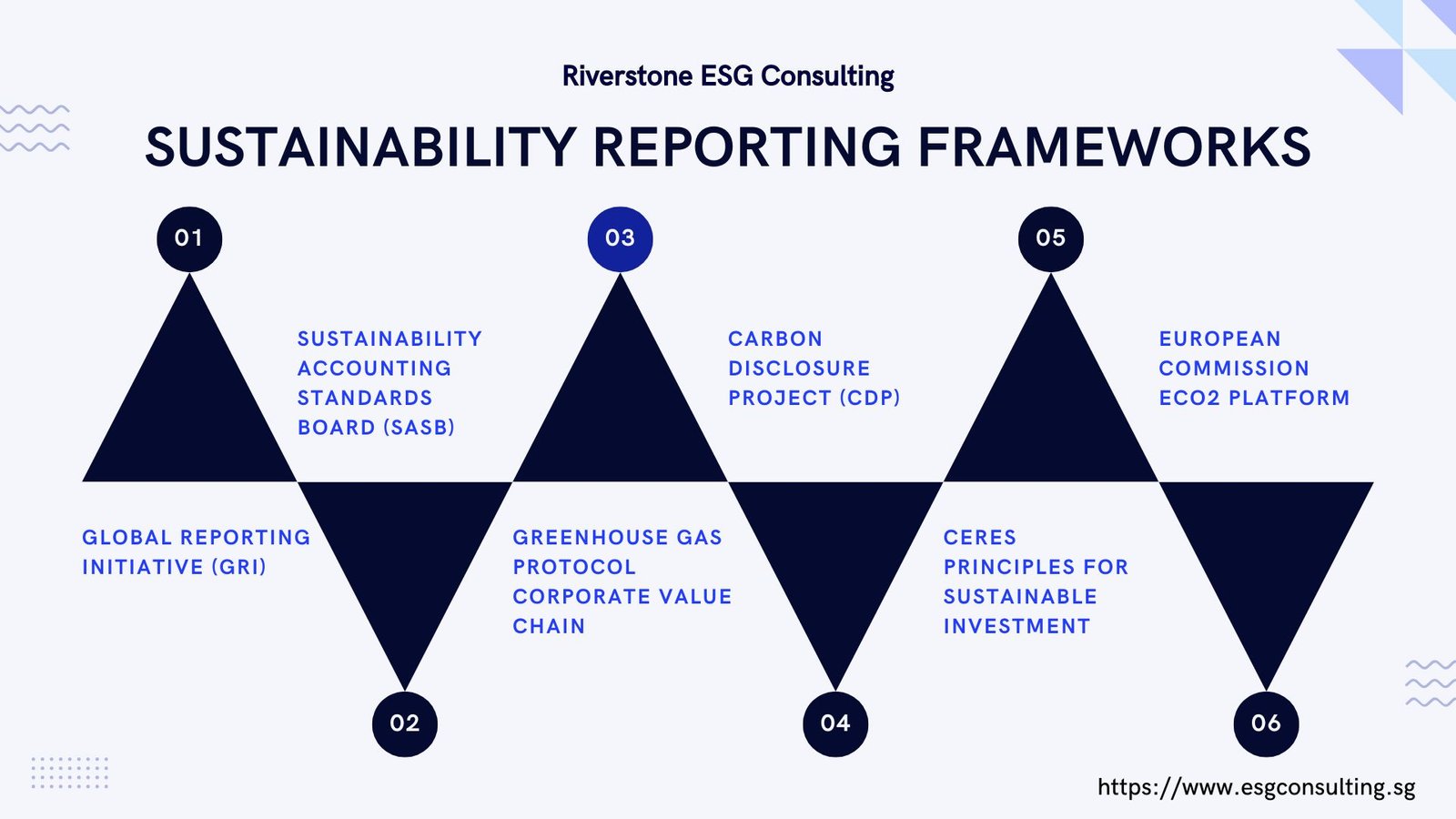The Role of Social Criteria in ESG Evaluation
Evaluation of the social Criteria of ESG in Singapore.
Let’s take a look at the evaluation of the social aspect of ESG.
Understanding the Core Focus of the Social Aspect in ESG Evaluations: A Deep Dive into Key Considerations
- The social factor talks about businesses and their dealings with people.
- It is concerned with the consideration of people and relationships.
- It involves companies’ impact and interaction with employees, customers, and society.
- It tells how companies address social inequalities.
- It is a process for creating a successful place that is sustainable and promotes wellbeing.
- It combines both physical and social infrastructures to support social life and amenities, a space for development, and a place for people.
Exploring the Diverse Areas of Interest Within Social Factors in ESG Assessment and Investment Strategies
There are several parts involved in the social aspects of ESG. The following areas are commonly addressed.
- Relationship:- This has to do with a company’s interaction with its employees, customers and suppliers, and society. It focuses mainly on:
- Companies’ wages considerations.
- Employees’ engagement and turnover.
- Customers’ and suppliers’ feedback and support.
- Community relation:- This area is concerned with how a company impacts the community around it – how it benefits or harms the surrounding community.
- Human rights:- Human rights are a very important aspect to be considered. The human rights violation should be properly investigated using the ESG strategies. Investors should endeavor to kick against a poor human rights record.
- Workplace health and safety:- This pertains to the health and safety of employees and their working environment.
- Diversity:- Diversity values increase productivity and impact business profitability. Proposal for diversity legislation has been considered by senate committees and the proposed legislation includes:
- Gender reporting.
- Ethnicity
- Models for the increment of employee diversity.
- Race
- Leadership status.
- Political contribution and affiliation: – These two are important aspects identifiable in the evaluation of social factors. It deals with company’s intersect with political ties and evaluation of political risks and avoidance of conflict.
Unveiling the Tangible Benefits of Social Contribution by Companies: Enhancing Reputation and Fostering Sustainable Growth in Singapore
- Consistent financial returns.
- Enhanced social outcomes.
- Structural growth opportunities.
- Reduce the involvement of risk inherent in the industry.
- Companies gain consumer engagement and other benefits.
How Social Sustainability Initiatives Provide Crucial Support for Business Resilience and Long-Term Value Creation
The following are ways through which social sustainability helps businesses.
- It helps them gain access to unlocking new markets.
- Helps companies in retaining business partners.
- Raising employee engagement.
- Helps businesses in enhancing risk management.
- Helps to rectify company-community disputes.
- Source of the invention for modern products or service lines.
Identifying Key Social Sustainability Issues and Factors: A Framework for Effective ESG Evaluation and Reporting
- Equity:- focuses on projects and its disadvantage to the target group.
- Diversity:- concerned with identifying diverse groups and viewpoints within the target group.
- Social cohesion:- concerned with target group participation in social activities.
- Quality of life:- concerned with the improvement of health, education and skill development, and housing opportunities for the target group.
Defining and Understanding Social Responsibility: A Cornerstone of Ethical Business Practices and Sustainable Development in Singapore
Social responsibly is also sometimes called corporate social responsibility CSR and it refers to:
- Governments and organizations and the way they act towards disturbing social sustainability.
- It comprises their roles to ensure steady strong values and moral characteristics.
- It associates organizations including other entities which are deemed corporate citizens with accountability.
- Primarily, the responsibility of an organization is to assure absolute financial returns for shareholders.
The Corporate Responsibility Pyramid in Singapore: A Framework for Understanding Business Obligations and Social Impact
The responsibilities of business are grouped into four categories which are:
- Philanthropic:- The contribution of good resources to the community and improvement of the quality of life by good corporate citizens.
- Legal:- Obedience to the law and following the rules of the game.
- Ethical:- Being careful and avoiding harm. Keeping to the obligation of doing what is right, decent, and just.
- Economic:- Being profitable by providing the foundation upon which others can rest.
Importance of Social Factors in ESG Investing
When it comes to ESG investing, social factors aren’t just a nice-to-have—they’re essential. How a company treats its people and communities says a lot about its values and long-term viability. From employee well-being to diversity and inclusion, these aspects matter to investors. Explore why the social side of ESG plays such a big role in making smart, sustainable investment decisions.
How Social Criteria Impact ESG Ratings in Singapore
Social factors can make or break a company’s ESG rating. Think fair wages, safe working conditions, and community engagement. When these aren’t up to par, ESG scores drop—and so does investor trust. If you’re wondering how these social elements affect a company’s rating, check out this breakdown on the impact of social criteria in ESG evaluations.
Measuring Social Performance in ESG Evaluations
How do you measure a company’s social performance? It’s more than numbers—it’s about culture, values, and real-world impact. From how employees are treated to ethical sourcing, these metrics help paint a full picture. Get a clearer view on what goes into social performance in ESG evaluations.
ESG Social Criteria and Human Rights in Singapore
Human rights are at the core of ESG social criteria. Companies are expected to uphold basic rights like fair treatment, non-discrimination, and safe workplaces. Investors pay close attention—because doing business responsibly isn’t optional anymore. Learn how human rights are shaping ESG evaluations today.
ESG Evaluation Social Impact Assessment
Ever wonder how businesses measure their impact on society? Through social impact assessments. These help evaluate how company actions affect people—whether that’s supporting local communities or improving workplace equity. Want to see how it all ties into ESG? This guide on social impact assessments in ESG evaluations breaks it down.
The Role of Labor Practices in ESG Ratings
Good labor practices speak volumes about a company. Fair pay, safe conditions, and respectful treatment aren’t just ethical—they’re smart business. These practices directly influence ESG ratings and investor decisions. Take a closer look at why labor standards matter so much in ESG.
ESG Criteria for Community Relations and Social Responsibility
How a company shows up in the community says a lot about its values. Strong ESG strategies include giving back, engaging locally, and creating positive social impact. These efforts go a long way in building trust—and ESG strength. Discover how community relations play into ESG criteria.
ESG Frameworks for Social Sustainability and Ethical Investing
Investing ethically isn’t just about the environment—it’s about people too. ESG frameworks help guide investors toward companies that champion fairness, diversity, and long-term social sustainability. Curious how it works? See how social sustainability is woven into ESG frameworks and why it matters for values-driven investing.
ESG vs. SRI: Distinguishing Between Environmental, Social, and Governance Factors and Socially Responsible Investing in Singapore
- SRI is the acronym for Socially Responsible Investing.
- It philosophically gave rise to ESG investing but has key differences with it.
- Initial models use-value judgment and negative screening to choose companies to invest with.
- On the other hand, ESG does not only support a set of values.
- The analysis and investing on ESG focus more on searching for company value.

